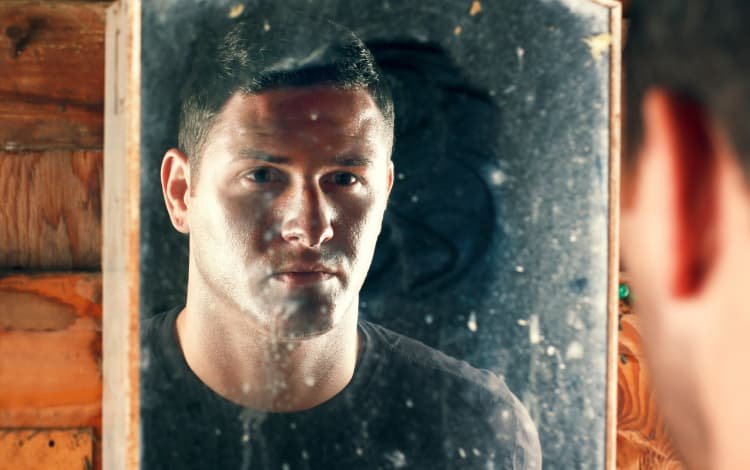Open Relationships in the Gay Community: A Free Pass to Avoid Cheating or a Valid Relationship Structure?
Open relationships, where partners agree that it's acceptable to engage in sexual activity with other people, are not a new concept.
However, they tend to be more common and accepted within the LGBTQ+ community, particularly among gay male couples.
Research suggests that 30-50% of gay couples engage in some form of consensual non-monogamy.
Some earlier studies suggested higher rates.
A 2010 survey by San Francisco State University found that 50% of gay male couples were not monogamous.
Hunter College concluded in 2013 that 53% of partnered gay men were in an open relationship.
This raises an intriguing question - are open relationships simply a "free pass" that gay men use to avoid the messiness of cheating when a relationship gets stale?
This might be true; couples who have been together longer are more likely to open their relationship.
Let's take a closer look at the complex dynamics at play.
The Prevalence of Cheating
It's an unfortunate reality that cheating and infidelity are common in relationships across the board, regardless of sexual orientation.
Various studies estimate that in heterosexual marriages, about 20-25% of men and 10-15% of women engage in extramarital sex at some point. The rates tend to be even higher in unmarried relationships.
In the gay male community specifically, some research suggests that over 50% of couples experience infidelity.
The reasons are varied - the ability of gay men to separate sex and emotion more easily, the strong emphasis on sex in gay culture, lingering shame and internalized homophobia driving covert behavior, and a lack of scripts and role models for long-term same-sex relationships.
Given these sobering statistics, it's understandable why some gay couples may decide to open up their relationship as a preemptive solution.
The logic is that explicitly allowing sex with others removes the secrecy, betrayal, and drama of cheating. In effect, there's nothing to "cheat" on if the relationship is open.
It can be seen as a pragmatic way to accommodate the natural sexual desires and temptations that arise, especially if a relationship is going through a "stale" period.
A Closer Look at Open Relationships
However, characterizing open relationships as simply a "free pass to cheat" is overly simplistic and dismissive.
Non-monogamous relationship structures, when done ethically and consensually, are valid options that work well for many people, straight and gay alike.
There are many different types of open arrangements, each with its own specific rules and boundaries.
Some allow only purely sexual flings, while others allow full romantic connections. Some have a "don't ask, don't tell" policy, while others share all the details.
The common thread is that both partners explicitly agree to some degree of non-exclusivity.
When done right with clear communication, honesty, and mutual care, open relationships can have various benefits:
Reducing the shame and secrecy around natural desires for sexual variety
Allowing space for sexual/romantic needs that a single partner can't meet
Building trust through radical honesty rather than deception
Encouraging each partner's independence and growth
Keeping the primary relationship fresh and appreciated by contrast
Of course, like any relationship structure, open relationships come with their own challenges. They are not an easy fix for existing relationship issues.
Some common problems include:
Difficulty untangling sex and emotion
Imbalanced enthusiasm about openness between partners
Jealousy, insecurity, and feeling threatened
Struggle to maintain intimacy and connection in the primary relationship
Logistics of scheduling and safe sex
Considering both the benefits and challenges, non-monogamy is best seen as simply one option on the relationship structure menu rather than a loophole to get away with cheating.
It takes strong communication, self-awareness, and emotional skills to navigate well.
Alternatives to Non-Monogamy
This isn't to say that monogamy is easy or problem-free.
Almost all long-term relationships go through "stale" periods when passion fades and temptations arise.
However, there are ways to deal with this challenge other than opening up the relationship:
Prioritizing open communication about unmet needs
Scheduling regular date nights and adventures to reconnect
Seeing a couples counselor to work through rough patches
Recommitting to putting time and effort into the relationship
Experimenting with new sexual activities as a couple
Practicing forgiveness and starting anew after a betrayal
Ultimately, the antidote to cheating in any relationship is building a foundation of trust, honesty, commitment, and mutual fulfillment - not necessarily sexual exclusivity.
Different relationship structures can support this in various ways for different people.
Concluding Thoughts
Open relationships are not simply a "get out of jail free" card to sidestep cheating. When practiced maturely, open arrangements are a valid structure with their own benefits and challenges. They demand strong communication, honesty, and self-awareness from both partners.
Ultimately, gay men, like anyone else, have a spectrum of relationship styles to choose from depending on their values, needs, and what works for them - ranging from strict monogamy to "monogamish" to fully open.
The key to any structure is building trust, care, and fulfillment in the primary relationship.
Reducing cheating is a happy byproduct of doing that foundational work, not a quick-fix solution.
As a gay community, we need to continue openly discussing these nuanced issues. This will help us advance understanding and support healthy relationships in all their diversity.
Are you navigating the complexities of an open relationship?
If you're considering opening up your relationship or dealing with infidelity, it helps to talk to a therapist. Reach out to schedule a session and explore your options in a non-judgmental, supportive environment.
By Gino Cosme
Gino is a gay counselor and therapist working online with English-speaking gay men in Germany, Italy, Spain, the UK, the Netherlands, and the USA.









